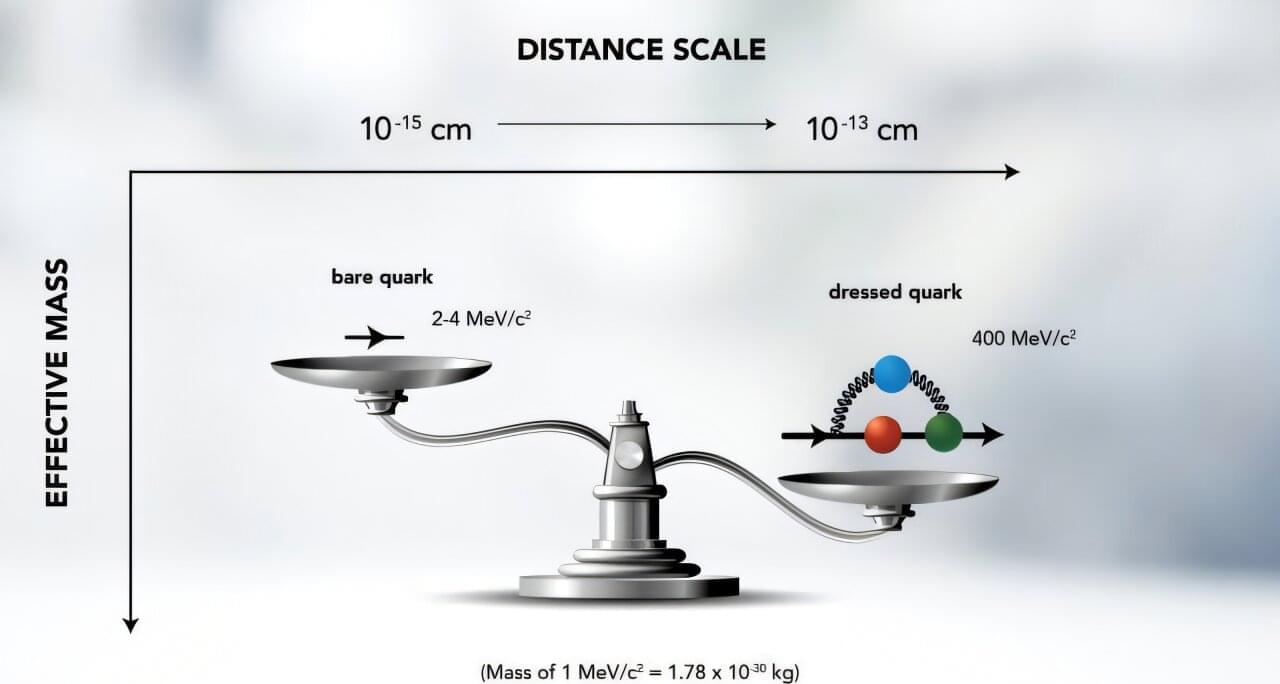Deep in the heart of the matter, some numbers don’t add up. For example, while protons and neutrons are made of quarks, nature’s fundamental building blocks bound together by gluons, their masses are much larger than the individual quarks from which they are formed.
This leads to a central puzzle … why? In the theory of the strong interaction, known as quantum chromodynamics or QCD, quarks acquire their bare mass through the Higgs mechanism. The long-hypothesized process was confirmed by experiments at the CERN Large Hadron Collider in Switzerland and led to the Nobel Prize for Peter Higgs in 2013.
Yet the inescapable issue remains that “this mechanism contributes to the measured proton and neutron masses at the level of less than 2%,” said Victor Mokeev, a staff scientist and phenomenologist at the U.S. Department of Energy’s Thomas Jefferson National Accelerator Facility.









